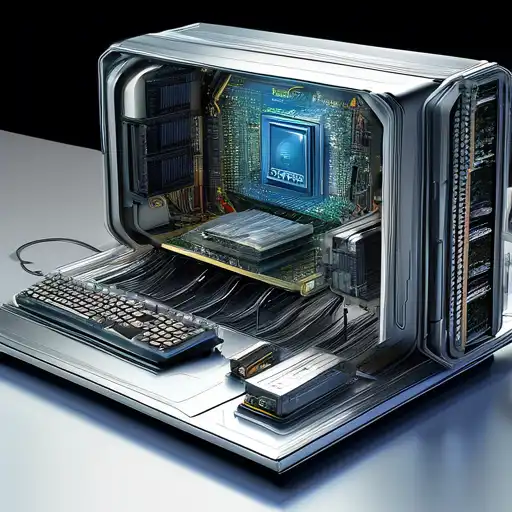The Evolution of Computer Hardware Design
As we delve deeper into the 21st century, the future of computer hardware design is being shaped by groundbreaking innovations and the relentless pursuit of efficiency, performance, and sustainability. The next generation of computer hardware is not just about faster processors or more memory; it's about reimagining the very fabric of computing technology.
Emerging Trends in Hardware Design
Several key trends are poised to redefine the landscape of computer hardware design. These include the rise of quantum computing, the integration of artificial intelligence in hardware development, and the shift towards more sustainable and energy-efficient designs. Each of these trends offers a glimpse into a future where computers are more powerful, more intuitive, and more in harmony with our environmental responsibilities.
Quantum Computing: A Leap into the Future
Quantum computing represents one of the most exciting frontiers in computer hardware design. Unlike traditional computers, which use bits to process information, quantum computers use quantum bits or qubits. This allows them to perform complex calculations at speeds unimaginable with today's technology. The potential applications of quantum computing range from drug discovery to climate modeling, making it a cornerstone of future hardware innovation.
AI and Machine Learning in Hardware Development
Artificial intelligence (AI) and machine learning are not just transforming software; they're revolutionizing hardware design. AI algorithms can now predict the optimal configurations for hardware components, leading to more efficient and powerful designs. This synergy between AI and hardware is accelerating the pace of innovation, enabling the creation of systems that can learn and adapt over time.
Sustainability: The New Imperative
As the world becomes increasingly aware of the environmental impact of technology, sustainability has become a key consideration in hardware design. Future hardware will need to be not only more energy-efficient but also made from materials that are easier to recycle. This shift towards green computing is not just good for the planet; it's also becoming a competitive advantage in the tech industry.
Conclusion
The future of computer hardware design is bright, with innovations like quantum computing, AI-driven development, and sustainable practices leading the way. As these technologies mature, they will unlock new possibilities for computing, making our devices faster, smarter, and more environmentally friendly. The journey ahead is as exciting as it is challenging, and it's one that will redefine our relationship with technology.
For more insights into the future of technology, explore our articles on future tech trends and sustainable computing.
